0 Commentarios
0 Acciones
220 Views
0 Vista previa

Directorio
Discover new people, build meaningful connections, and make lasting friendships on our social platform. Connect with others and expand your network today!
-
Please log in to like, share and comment!
-
 NEWSISOUT.COMCuts to HIV funding and health services could hit LGBTQ+ communities hardAs the second Trump administration rolls back LGBTQ+ rights and visibility, some of his early decisions could prove to be an indirect hit to already marginalized members of the community.The federal government recently terminated millions of dollars in grants towards HIV-related research. The Trump administration is also considering eliminating the CDCs HIV prevention division, and there are concerns about the future of the Ryan White HIV/AIDS programa federal initiative aimed at providing support for people with HIV.One of Trumps most controversial executive orders in his first few days was the reversal of Executive Order 14087 a Biden-era order aimed at lowering prescription drug prices. Some of the points in Bidens order included a cap for out-of-pocket costs at the pharmacy and the power of the Secretary of State to negotiate prices for selected high-cost prescription drugs for Medicare beneficiaries for the first time ever.According to a 2023 report by UCLA School of Laws Williams Institute, LGBTQ+ people experience poverty at a higher percentage rate than their non-LGBTQ+ counterparts. The same is true for the uninsured in Dec. 2021, nearly 10% of LGBTQ+ adults reported being without insurance compared to just over 7% of non-LGBTQ adults.Looking at HIV infections themselves, of 31,800 estimated new infections in 2022, 71% were among gay and bisexual men. Hispanic and Latino men make up 36% of these and Black and African American accounted for another 34%, the two highest percentages among demographics.Latino and Black communities also report higher rates of poverty and uninsurance than white Americans, making them more susceptible to the effects of rising drug costs.Nadeen Israel, Senior Vice President of Policy and Advocacy at AIDS Foundation of Chicago, said most of her work is done with a close focus on Medicaid. She said with the current political climate, the organizations resources, time and efforts are being put into defense mode.Were spending most of our time, essentially trying to hold the line as much as possible on the programs, funding, structure of the systems [amd] the policies that undergird our healthcare system, she said.Part of Israels current research involves finding and seeing which demographics are disproportionately affected by HIV or lack of access to care. She said the data has been consistent for many years that there is a disproportionate impact on Black and Latine folks, specifically men who partner with men, trans women of color and Black cisgender women.Theyve been hit hardest for a while now, and unless we can do better year over year, thats not going to change, Israel said. Unfortunately, in this environment, the worry is that were going to get worse instead of better because of all the attacks on these particular populations.Dr. Richard M. Novak, Chief of the Division of Infectious Diseases at UI Health, received his MD in 1981the year HIV was first described. He started his infectious diseases training in 1986 and began a career of work with the disease and its treatment.When he was working in clinics and initial HIV drugs, he said government support via funding allowed them to get access to the drugs for treating patients. He said this type of program is especially key today for the uninsured or underinsured.The assistance program included coverage of anybody who couldnt afford their medication, he said. You can only hope that the current government doesnt end the Ryan White Program.In regards to Trumps executive order against prescription drugswhich could be challenged in court like many of his ordersIsrael said the impact will not be felt right away. However, she said Medicare is able to negotiate prices over some drugs with pharmaceutical companies, and she could see that being one of the first things to be limited.Unfortunately, in this environment, the worry is that were going to get worse instead of better because of all the attacks on these particular populations.Nadeen IsraelThe funding cuts to social services and organizations couldand are alreadycausing problems of their own. Israel said when these people get laid off and lose their jobs, communities also lose all of that institutional knowledge as well as access to the services, which could take decades to build back up.Novak said drug treatment has evolved over the years and given rise to incredible options, but many are still highly priced. He said there are slightly less expensive generic optionsor even those which have been more or less phased out due to more intense side effectswhich could be options for people if the government were to withdraw support for medication.When it comes to how that could affect marginalized communities, Novak said those types of rollbacks could just continue to pile on to the attacks on the trans community.I mean, this government is anti-trans, so its really making it very difficult for trans people to exist in society, he said. Fortunately here in Illinois we have a haven, but elsewhere in the country, its more difficult.During the peak of the COVID-19 pandemic, Israel said they saw a jump in HIV diagnoses because they werent able to be out in communities testing and talking about PrEP and PEP. She said cutting services related to HIV will have the same effect and send prevention work backwards.Potential Medicaid cuts would also disproportionately harm those living with HIVaccording to Israel, 41% of HIV+ people are on the program. She said those cuts, if they occurred, would be felt immediately.Illinois and other states cannot bear [or] makeup for the cost, she said. Theres no way, just because its to the tune of billions, a few billion dollars a year. Even if states were willing to raise some taxes that they have control over in order to make up for it, they cant raise taxes enough without impacting other parts of the economy.Beyond changes and attacks on policy, Israel said Republicans verbal and psychological attacks on queer young people, the trans community, the HIV+ community and more equates to lifetime damage that wont just reverse undo a new administration. However, she said there are small actions people can take to help fight back, such as going to protests or town halls.Joining as folks can is really, really important, and it works, she said. It works in pushing back and we can beat them back. We can stop these policies, but it will take many, many people to turn out until we ultimately win.The post Cuts to HIV funding and health services could hit LGBTQ+ communities hard appeared first on News Is Out.0 Commentarios 0 Acciones 212 Views 0 Vista previa
NEWSISOUT.COMCuts to HIV funding and health services could hit LGBTQ+ communities hardAs the second Trump administration rolls back LGBTQ+ rights and visibility, some of his early decisions could prove to be an indirect hit to already marginalized members of the community.The federal government recently terminated millions of dollars in grants towards HIV-related research. The Trump administration is also considering eliminating the CDCs HIV prevention division, and there are concerns about the future of the Ryan White HIV/AIDS programa federal initiative aimed at providing support for people with HIV.One of Trumps most controversial executive orders in his first few days was the reversal of Executive Order 14087 a Biden-era order aimed at lowering prescription drug prices. Some of the points in Bidens order included a cap for out-of-pocket costs at the pharmacy and the power of the Secretary of State to negotiate prices for selected high-cost prescription drugs for Medicare beneficiaries for the first time ever.According to a 2023 report by UCLA School of Laws Williams Institute, LGBTQ+ people experience poverty at a higher percentage rate than their non-LGBTQ+ counterparts. The same is true for the uninsured in Dec. 2021, nearly 10% of LGBTQ+ adults reported being without insurance compared to just over 7% of non-LGBTQ adults.Looking at HIV infections themselves, of 31,800 estimated new infections in 2022, 71% were among gay and bisexual men. Hispanic and Latino men make up 36% of these and Black and African American accounted for another 34%, the two highest percentages among demographics.Latino and Black communities also report higher rates of poverty and uninsurance than white Americans, making them more susceptible to the effects of rising drug costs.Nadeen Israel, Senior Vice President of Policy and Advocacy at AIDS Foundation of Chicago, said most of her work is done with a close focus on Medicaid. She said with the current political climate, the organizations resources, time and efforts are being put into defense mode.Were spending most of our time, essentially trying to hold the line as much as possible on the programs, funding, structure of the systems [amd] the policies that undergird our healthcare system, she said.Part of Israels current research involves finding and seeing which demographics are disproportionately affected by HIV or lack of access to care. She said the data has been consistent for many years that there is a disproportionate impact on Black and Latine folks, specifically men who partner with men, trans women of color and Black cisgender women.Theyve been hit hardest for a while now, and unless we can do better year over year, thats not going to change, Israel said. Unfortunately, in this environment, the worry is that were going to get worse instead of better because of all the attacks on these particular populations.Dr. Richard M. Novak, Chief of the Division of Infectious Diseases at UI Health, received his MD in 1981the year HIV was first described. He started his infectious diseases training in 1986 and began a career of work with the disease and its treatment.When he was working in clinics and initial HIV drugs, he said government support via funding allowed them to get access to the drugs for treating patients. He said this type of program is especially key today for the uninsured or underinsured.The assistance program included coverage of anybody who couldnt afford their medication, he said. You can only hope that the current government doesnt end the Ryan White Program.In regards to Trumps executive order against prescription drugswhich could be challenged in court like many of his ordersIsrael said the impact will not be felt right away. However, she said Medicare is able to negotiate prices over some drugs with pharmaceutical companies, and she could see that being one of the first things to be limited.Unfortunately, in this environment, the worry is that were going to get worse instead of better because of all the attacks on these particular populations.Nadeen IsraelThe funding cuts to social services and organizations couldand are alreadycausing problems of their own. Israel said when these people get laid off and lose their jobs, communities also lose all of that institutional knowledge as well as access to the services, which could take decades to build back up.Novak said drug treatment has evolved over the years and given rise to incredible options, but many are still highly priced. He said there are slightly less expensive generic optionsor even those which have been more or less phased out due to more intense side effectswhich could be options for people if the government were to withdraw support for medication.When it comes to how that could affect marginalized communities, Novak said those types of rollbacks could just continue to pile on to the attacks on the trans community.I mean, this government is anti-trans, so its really making it very difficult for trans people to exist in society, he said. Fortunately here in Illinois we have a haven, but elsewhere in the country, its more difficult.During the peak of the COVID-19 pandemic, Israel said they saw a jump in HIV diagnoses because they werent able to be out in communities testing and talking about PrEP and PEP. She said cutting services related to HIV will have the same effect and send prevention work backwards.Potential Medicaid cuts would also disproportionately harm those living with HIVaccording to Israel, 41% of HIV+ people are on the program. She said those cuts, if they occurred, would be felt immediately.Illinois and other states cannot bear [or] makeup for the cost, she said. Theres no way, just because its to the tune of billions, a few billion dollars a year. Even if states were willing to raise some taxes that they have control over in order to make up for it, they cant raise taxes enough without impacting other parts of the economy.Beyond changes and attacks on policy, Israel said Republicans verbal and psychological attacks on queer young people, the trans community, the HIV+ community and more equates to lifetime damage that wont just reverse undo a new administration. However, she said there are small actions people can take to help fight back, such as going to protests or town halls.Joining as folks can is really, really important, and it works, she said. It works in pushing back and we can beat them back. We can stop these policies, but it will take many, many people to turn out until we ultimately win.The post Cuts to HIV funding and health services could hit LGBTQ+ communities hard appeared first on News Is Out.0 Commentarios 0 Acciones 212 Views 0 Vista previa -
 WWW.PRIDE.COMWatch Jennifer Beals flirt with Kelly Clarkson:"I heard you like your women older"Kelly Clarkson has been driving sapphics wild for a while now, but when she combined forces with a flirty Jennifer Beals this week, lesbians everywhere started melting down and we dont blame them!The L Word actress appeared on yesterdays episode of The Kelly Clarkson Show where an exchange about the talk show hosts recent viral moment when she winked while singing the lyrics, "You know I like my girls a little bit older during a performance of Your Love by The Outfield, queer women and straight women a like started swooning.The moment starts with Clarkson complimenting Beals sultry voice. "I wish I had your voice, by the way. You're so... quietly sexy. It's amazing, she admitted.That's when the 61-year-old actress flirted right back, "I heard you like your women older or something?Clarkson immediately lost it and started clapping and laughing before trying to explain her wink heard round the world.I had to get that in, I had to. A friend of mine made me do it, Beals joked."I've been winking since the Miss Independent video in 2002, Clarkson said before getting flustered and saying she could explain the moment that has been driving sapphics wild since it happened back in February. I play characters almost when I'm singing songs, especially when covering songs... and I don't always change the he/she because I don't think it matters, and but yeah, I winked on purpose for fun and wow!@nomadd.7That wink though. #kellyclarkson #fyp #trendingvideoSo now we know, if you ever need to catch a lesbian, bait the trap with this video clip of the sexy L Word star on the same couch as The Kelly Clarkson flirting about the wink.The clip of this exchange has been sending women into a frenzy on social media, with people on YouTube joking that this must have been a gay panic moment for Clarkson.Someone commented, I get you're straight Kelly, but this is one of the most epic gay panic moments I have ever seen! LOL! I just hope this won't stop you from winking. Keep winking girl, let the fans dream!But the funniest comments reference Beals The L Word character Bette Porter They invited Jennifer and got Bette! One person wrote, while someone else commented, Kelly Clarkson just got Bette Portered, and someone else quipped, Gosh NOT Bette Porter flirting on national TV. TINA come get your wife.0 Commentarios 0 Acciones 197 Views 0 Vista previa
WWW.PRIDE.COMWatch Jennifer Beals flirt with Kelly Clarkson:"I heard you like your women older"Kelly Clarkson has been driving sapphics wild for a while now, but when she combined forces with a flirty Jennifer Beals this week, lesbians everywhere started melting down and we dont blame them!The L Word actress appeared on yesterdays episode of The Kelly Clarkson Show where an exchange about the talk show hosts recent viral moment when she winked while singing the lyrics, "You know I like my girls a little bit older during a performance of Your Love by The Outfield, queer women and straight women a like started swooning.The moment starts with Clarkson complimenting Beals sultry voice. "I wish I had your voice, by the way. You're so... quietly sexy. It's amazing, she admitted.That's when the 61-year-old actress flirted right back, "I heard you like your women older or something?Clarkson immediately lost it and started clapping and laughing before trying to explain her wink heard round the world.I had to get that in, I had to. A friend of mine made me do it, Beals joked."I've been winking since the Miss Independent video in 2002, Clarkson said before getting flustered and saying she could explain the moment that has been driving sapphics wild since it happened back in February. I play characters almost when I'm singing songs, especially when covering songs... and I don't always change the he/she because I don't think it matters, and but yeah, I winked on purpose for fun and wow!@nomadd.7That wink though. #kellyclarkson #fyp #trendingvideoSo now we know, if you ever need to catch a lesbian, bait the trap with this video clip of the sexy L Word star on the same couch as The Kelly Clarkson flirting about the wink.The clip of this exchange has been sending women into a frenzy on social media, with people on YouTube joking that this must have been a gay panic moment for Clarkson.Someone commented, I get you're straight Kelly, but this is one of the most epic gay panic moments I have ever seen! LOL! I just hope this won't stop you from winking. Keep winking girl, let the fans dream!But the funniest comments reference Beals The L Word character Bette Porter They invited Jennifer and got Bette! One person wrote, while someone else commented, Kelly Clarkson just got Bette Portered, and someone else quipped, Gosh NOT Bette Porter flirting on national TV. TINA come get your wife.0 Commentarios 0 Acciones 197 Views 0 Vista previa -
 WWW.PRIDE.COMHunter Doohan has fans drooling over his steamy new 'Wednesday' picNetflix is giving Wednesday fans the ultimate tease.Hunter Doohan had audiences going berzerk during season one of the popular TV show and his fanbase grew exponentially.The handsome actor has shown plenty of skin online in the past, so thankfully the LGBTQ+ Netflix team at Most dropped a spicy teaser for Wednesday season two that features a shirtless Doohan on set.Check out the the steamy pic and some hilarious reactions for yourself below! (@) (@) (@) (@) (@) (@)0 Commentarios 0 Acciones 202 Views 0 Vista previa
WWW.PRIDE.COMHunter Doohan has fans drooling over his steamy new 'Wednesday' picNetflix is giving Wednesday fans the ultimate tease.Hunter Doohan had audiences going berzerk during season one of the popular TV show and his fanbase grew exponentially.The handsome actor has shown plenty of skin online in the past, so thankfully the LGBTQ+ Netflix team at Most dropped a spicy teaser for Wednesday season two that features a shirtless Doohan on set.Check out the the steamy pic and some hilarious reactions for yourself below! (@) (@) (@) (@) (@) (@)0 Commentarios 0 Acciones 202 Views 0 Vista previa -
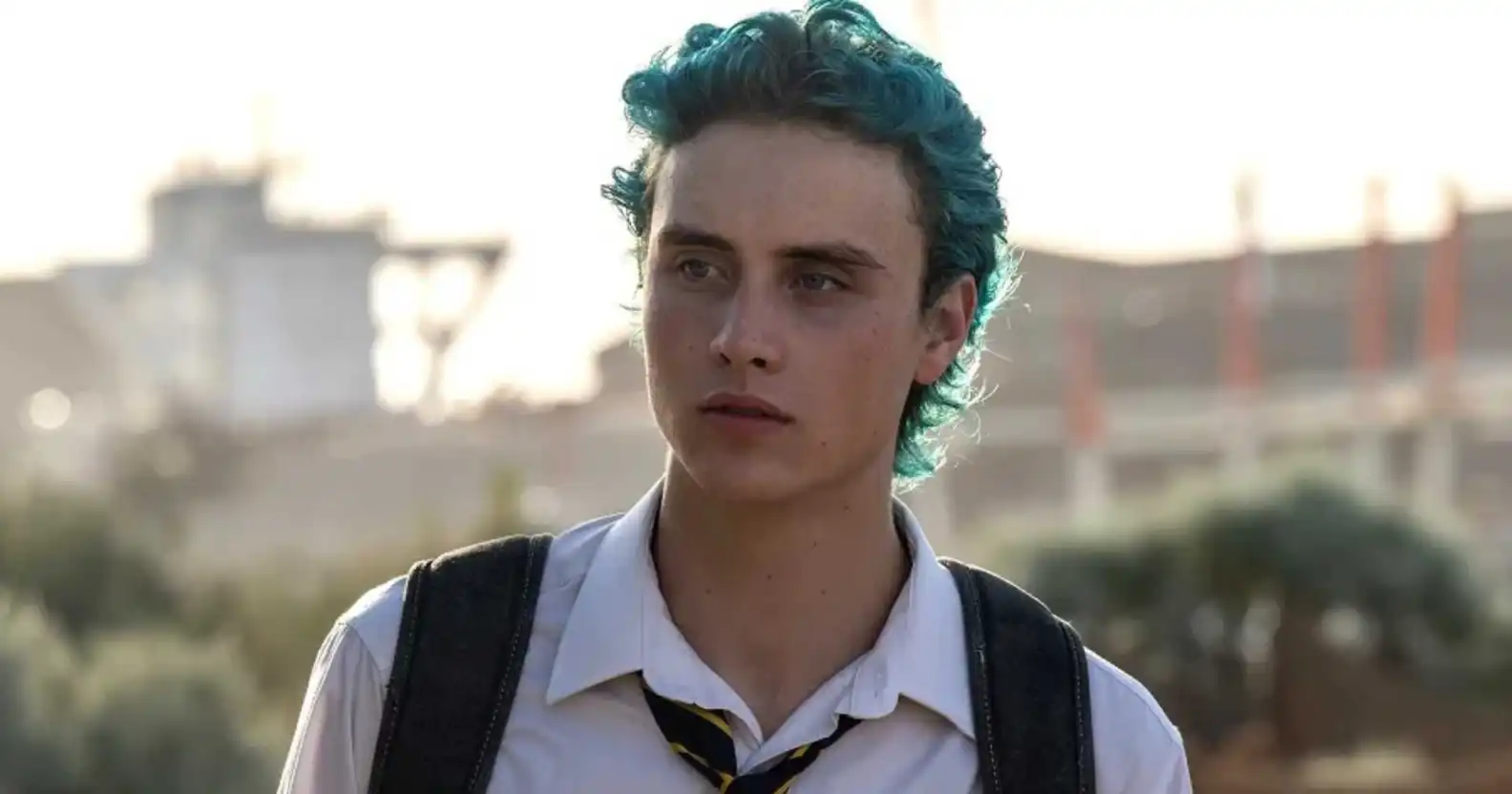 GAYETY.COJoseph Zada Cast as Young Haymitch in Hunger Games Prequel, Drawing from LGBTQ+ RootsJoseph Zada, the Australian actor acclaimed for his portrayal of Charlie Roth in the Stan Original Series Invisible Boys, has been cast as a young Haymitch Abernathy in the upcoming Hunger Games prequel, Sunrise on the Reaping. This film adaptation of Suzanne Collins latest novel is set to delve into Haymitchs early life, exploring his experiences in the arena during the Second Quarter QuellSource0 Commentarios 0 Acciones 212 Views 0 Vista previa
GAYETY.COJoseph Zada Cast as Young Haymitch in Hunger Games Prequel, Drawing from LGBTQ+ RootsJoseph Zada, the Australian actor acclaimed for his portrayal of Charlie Roth in the Stan Original Series Invisible Boys, has been cast as a young Haymitch Abernathy in the upcoming Hunger Games prequel, Sunrise on the Reaping. This film adaptation of Suzanne Collins latest novel is set to delve into Haymitchs early life, exploring his experiences in the arena during the Second Quarter QuellSource0 Commentarios 0 Acciones 212 Views 0 Vista previa -
 GAYETY.COPuka Shells Are Back: Antoni Porowski Sparks a 90s Style Revival in NYCDust off your boy band playlists, order up a round of Smirnoff Ice, and prepare for a full-blown nostalgia wave: the puka shell necklace is officially making a comeback. And we have Antoni Porowski to thank for it. The Queer Eye food and fashion savant sent shockwaves through style circles on Monday, April 21, when he appeared at a New York City screening of CNNs Searching for Spain with EvaSource0 Commentarios 0 Acciones 197 Views 0 Vista previa
GAYETY.COPuka Shells Are Back: Antoni Porowski Sparks a 90s Style Revival in NYCDust off your boy band playlists, order up a round of Smirnoff Ice, and prepare for a full-blown nostalgia wave: the puka shell necklace is officially making a comeback. And we have Antoni Porowski to thank for it. The Queer Eye food and fashion savant sent shockwaves through style circles on Monday, April 21, when he appeared at a New York City screening of CNNs Searching for Spain with EvaSource0 Commentarios 0 Acciones 197 Views 0 Vista previa -
WWW.NATURE.COMEditorial Expression of Concern: Essential roles of PI(3)Kp110 in cell growth, metabolism and tumorigenesisNature, Published online: 24 April 2025; doi:10.1038/s41586-025-09026-7Editorial Expression of Concern: Essential roles of PI(3)Kp110 in cell growth, metabolism and tumorigenesis0 Commentarios 0 Acciones 200 Views 0 Vista previa
-
 WWW.ESPN.COMThe fishing ad that foreshadowed this incredible resurgence from Kawhi LeonardRecent dominance has shown what kind of player Leonard still is -- and what his career could have been.0 Commentarios 0 Acciones 201 Views 0 Vista previa
WWW.ESPN.COMThe fishing ad that foreshadowed this incredible resurgence from Kawhi LeonardRecent dominance has shown what kind of player Leonard still is -- and what his career could have been.0 Commentarios 0 Acciones 201 Views 0 Vista previa -
 WWW.ESPN.COMBad Boys and 'Detroit energy': What's behind this record-setting turnaround for the PistonsThe Pistons finished with one of the worst records in NBA history last season. Now, they enter Thursday's Game 3 tied 1-1 with the Knicks. What changed in Detroit?0 Commentarios 0 Acciones 218 Views 0 Vista previa
WWW.ESPN.COMBad Boys and 'Detroit energy': What's behind this record-setting turnaround for the PistonsThe Pistons finished with one of the worst records in NBA history last season. Now, they enter Thursday's Game 3 tied 1-1 with the Knicks. What changed in Detroit?0 Commentarios 0 Acciones 218 Views 0 Vista previa -
 WWW.NYTIMES.COMMan Charged With Arson in Vast New Jersey WildfireA 19-year-old was accused of lighting a bonfire and leaving before it was extinguished, sparking one of the largest blazes in the state in decades.0 Commentarios 0 Acciones 205 Views 0 Vista previa
WWW.NYTIMES.COMMan Charged With Arson in Vast New Jersey WildfireA 19-year-old was accused of lighting a bonfire and leaving before it was extinguished, sparking one of the largest blazes in the state in decades.0 Commentarios 0 Acciones 205 Views 0 Vista previa -
 WWW.NYTIMES.COMJudge Limits Trumps Ability to Withhold School Funds Over D.E.I.The administration was seeking to cut off money from public schools that allowed certain diversity and equity programs.0 Commentarios 0 Acciones 202 Views 0 Vista previa
WWW.NYTIMES.COMJudge Limits Trumps Ability to Withhold School Funds Over D.E.I.The administration was seeking to cut off money from public schools that allowed certain diversity and equity programs.0 Commentarios 0 Acciones 202 Views 0 Vista previa -
WWW.APARTMENTTHERAPY.COMI Tested (and Rated!) All the Console Tables at Pottery BarnTheyre so versatile!READ MORE...0 Commentarios 0 Acciones 222 Views 0 Vista previa
-
 APNEWS.COMAirlines, rattled by trade war and spending pullback, continue to cut flights, pull outlooksAmerican Airlines passenger jets prepare for departure, Wednesday, July 21, 2021, near a terminal at Boston Logan International Airport, in Boston. American Airlines Group Inc. (AAL) on Thursday, July 22 reported second-quarter net income of $19 million, after reporting a loss in the same period a year earlier. (AP Photo/Steven Senne)2025-04-24T15:07:18Z Major U.S. airlines are reducing their flight schedules and revising or withdrawing their profit outlooks for the year due to less domestic travel demand as sentiment about the national and global economies sours.American Airlines pulled its financial guidance for 2025 on Thursday, joining rivals Southwest and Delta in declaring the economic outlook too uncertain to provide full-year forecasts. All three airlines cited weakening sales among economy class leisure travelers. We came off a strong fourth quarter, saw decent business in January, and really domestic leisure travel fell off considerably as we went into the February time frame, American Airlines CEO Robert Isom told CNBC.Consumer reluctance to book vacations would correspond with a new poll that showed many people fear the U.S. is being steered into a recession and that President Donald Trumps broad and haphazardly enforced tariffs will cause prices to rise. Some economic indicators point to expectations of a slowdown. Sales of previously occupied U.S. homes slowed in March, and U.S. consumer sentiment plunged in April, the fourth consecutive month of declines. However, fears of a downturn have not translated into layoffs. Trump announced sweeping tariffs on April 2 that triggered panic in financial markets and generated recession fears, leading consumers and businesses to start pulling back on spending, which includes travel. The president put a partial 90-day hold on the import taxes but increased his already steep tariffs against China. Beijing increased its import tax on American goods to 125% in retaliation. On Thursday China denied Trumps assertion that the two sides were involved in active negotiations to end or mitigate their trade war. American Airlines said it would give an update on its full-year guidance as the economic outlook becomes clearer. Airline executives said sales among business travelers and for premium seats on long-haul international flights remained solid. Southwest Airlines reported late Wednesday that it would trim its flight schedule for the second half of the year due to lower demand. The company also said it could not reaffirm its 2025 and 2026 outlooks for earnings before interest and taxes, given current macroeconomic uncertainty. United Airlines last week gave two different financial forecasts for how it may perform this year, one if theres a recession and one if not. The airline said it planned to reduce its scheduled domestic flights by 4% starting in July in response to lower-than-expected demand for economy fare tickets.We think there is a reasonable chance things can weaken from here, United CEO Scott Kirby said. Delta Air Lines, the nations most profitable carrier, predicted as recently as January that the company was on track for the best financial year in its history. Earlier this month, the airline scratched its performance expectations for 2025 and said it was putting a planned flight schedule expansion on hold. With broad economic uncertainty around global trade, growth has largely stalled, Delta CEO Ed Bastian said at the time. In this slower-growth environment, we are protecting margins and cash flow by focusing on what we can control. This includes reducing planned capacity growth in the second half of the year.The parent companies of Frontier Airlines and Alaska Airlines also pulled their 2025 guidance. RSShttps://feedx.net https://feedx.site0 Commentarios 0 Acciones 199 Views 0 Vista previa
APNEWS.COMAirlines, rattled by trade war and spending pullback, continue to cut flights, pull outlooksAmerican Airlines passenger jets prepare for departure, Wednesday, July 21, 2021, near a terminal at Boston Logan International Airport, in Boston. American Airlines Group Inc. (AAL) on Thursday, July 22 reported second-quarter net income of $19 million, after reporting a loss in the same period a year earlier. (AP Photo/Steven Senne)2025-04-24T15:07:18Z Major U.S. airlines are reducing their flight schedules and revising or withdrawing their profit outlooks for the year due to less domestic travel demand as sentiment about the national and global economies sours.American Airlines pulled its financial guidance for 2025 on Thursday, joining rivals Southwest and Delta in declaring the economic outlook too uncertain to provide full-year forecasts. All three airlines cited weakening sales among economy class leisure travelers. We came off a strong fourth quarter, saw decent business in January, and really domestic leisure travel fell off considerably as we went into the February time frame, American Airlines CEO Robert Isom told CNBC.Consumer reluctance to book vacations would correspond with a new poll that showed many people fear the U.S. is being steered into a recession and that President Donald Trumps broad and haphazardly enforced tariffs will cause prices to rise. Some economic indicators point to expectations of a slowdown. Sales of previously occupied U.S. homes slowed in March, and U.S. consumer sentiment plunged in April, the fourth consecutive month of declines. However, fears of a downturn have not translated into layoffs. Trump announced sweeping tariffs on April 2 that triggered panic in financial markets and generated recession fears, leading consumers and businesses to start pulling back on spending, which includes travel. The president put a partial 90-day hold on the import taxes but increased his already steep tariffs against China. Beijing increased its import tax on American goods to 125% in retaliation. On Thursday China denied Trumps assertion that the two sides were involved in active negotiations to end or mitigate their trade war. American Airlines said it would give an update on its full-year guidance as the economic outlook becomes clearer. Airline executives said sales among business travelers and for premium seats on long-haul international flights remained solid. Southwest Airlines reported late Wednesday that it would trim its flight schedule for the second half of the year due to lower demand. The company also said it could not reaffirm its 2025 and 2026 outlooks for earnings before interest and taxes, given current macroeconomic uncertainty. United Airlines last week gave two different financial forecasts for how it may perform this year, one if theres a recession and one if not. The airline said it planned to reduce its scheduled domestic flights by 4% starting in July in response to lower-than-expected demand for economy fare tickets.We think there is a reasonable chance things can weaken from here, United CEO Scott Kirby said. Delta Air Lines, the nations most profitable carrier, predicted as recently as January that the company was on track for the best financial year in its history. Earlier this month, the airline scratched its performance expectations for 2025 and said it was putting a planned flight schedule expansion on hold. With broad economic uncertainty around global trade, growth has largely stalled, Delta CEO Ed Bastian said at the time. In this slower-growth environment, we are protecting margins and cash flow by focusing on what we can control. This includes reducing planned capacity growth in the second half of the year.The parent companies of Frontier Airlines and Alaska Airlines also pulled their 2025 guidance. RSShttps://feedx.net https://feedx.site0 Commentarios 0 Acciones 199 Views 0 Vista previa -
 WWW.PRIDE.COM'Drag Race' star Jiggly Caliente faces shocking health crisisRuPaul's Drag Race season 4 star Jiggly Caliente, a trans woman known as Bianca Castro out of drag, has reportedly "undergone the loss of most of her right leg."On Thursday, April 24, Castro's family shared a very concerning health update about the Pose actress and Drag Race Philippines judge.The statement reads:"Private Statement from the Family of Bianca Castro (Jiggly Caliente):The family of Bianca Castro, known to many as the beloved drag performer Jiggly Caliente, is heartbroken to share that over the last month Bianca has experienced a serious health setback. Due to a severe infection, she was hospitalized and, as a result, has undergone the loss of most of her right leg.Because of these circumstances, Bianca will not be appearing in the upcoming season of RuPaul's Drag Race Philippines, nor will she be participating in any public engagements for the foreseeable future. Her recovery will be extensive.At this time, we kindly ask for privacy for Bianca and her family as they navigate this difficult journey together. While Jiggly concentrates on healing, we invite her friends, fans, and community to uplift her with messages of hope and love on her social media channels.Bianca's family and drag house are deeply grateful for the continued outpouring of support, strength, and prayers."See on InstagramSeveral celebrities have shared comments under this Instagram statement posted by Castro's family.Bob the Drag Queen wrote, "Jiggly I love you so much. You always keep it so real. A true diva. Heal up sis." Michaela Ja Rodriguez commented, "Omg girl, I love you. You got this!!!! You are going to have a sickening recovery!!! You got this." Sasha Velour replied, "Sending you so much love." Ginger Minj wrote, "Sister, I love you more than words can say. You're always on my mind and I'm sending you all the good thoughts in the world."This story is still developing0 Commentarios 0 Acciones 217 Views 0 Vista previa
WWW.PRIDE.COM'Drag Race' star Jiggly Caliente faces shocking health crisisRuPaul's Drag Race season 4 star Jiggly Caliente, a trans woman known as Bianca Castro out of drag, has reportedly "undergone the loss of most of her right leg."On Thursday, April 24, Castro's family shared a very concerning health update about the Pose actress and Drag Race Philippines judge.The statement reads:"Private Statement from the Family of Bianca Castro (Jiggly Caliente):The family of Bianca Castro, known to many as the beloved drag performer Jiggly Caliente, is heartbroken to share that over the last month Bianca has experienced a serious health setback. Due to a severe infection, she was hospitalized and, as a result, has undergone the loss of most of her right leg.Because of these circumstances, Bianca will not be appearing in the upcoming season of RuPaul's Drag Race Philippines, nor will she be participating in any public engagements for the foreseeable future. Her recovery will be extensive.At this time, we kindly ask for privacy for Bianca and her family as they navigate this difficult journey together. While Jiggly concentrates on healing, we invite her friends, fans, and community to uplift her with messages of hope and love on her social media channels.Bianca's family and drag house are deeply grateful for the continued outpouring of support, strength, and prayers."See on InstagramSeveral celebrities have shared comments under this Instagram statement posted by Castro's family.Bob the Drag Queen wrote, "Jiggly I love you so much. You always keep it so real. A true diva. Heal up sis." Michaela Ja Rodriguez commented, "Omg girl, I love you. You got this!!!! You are going to have a sickening recovery!!! You got this." Sasha Velour replied, "Sending you so much love." Ginger Minj wrote, "Sister, I love you more than words can say. You're always on my mind and I'm sending you all the good thoughts in the world."This story is still developing0 Commentarios 0 Acciones 217 Views 0 Vista previa -
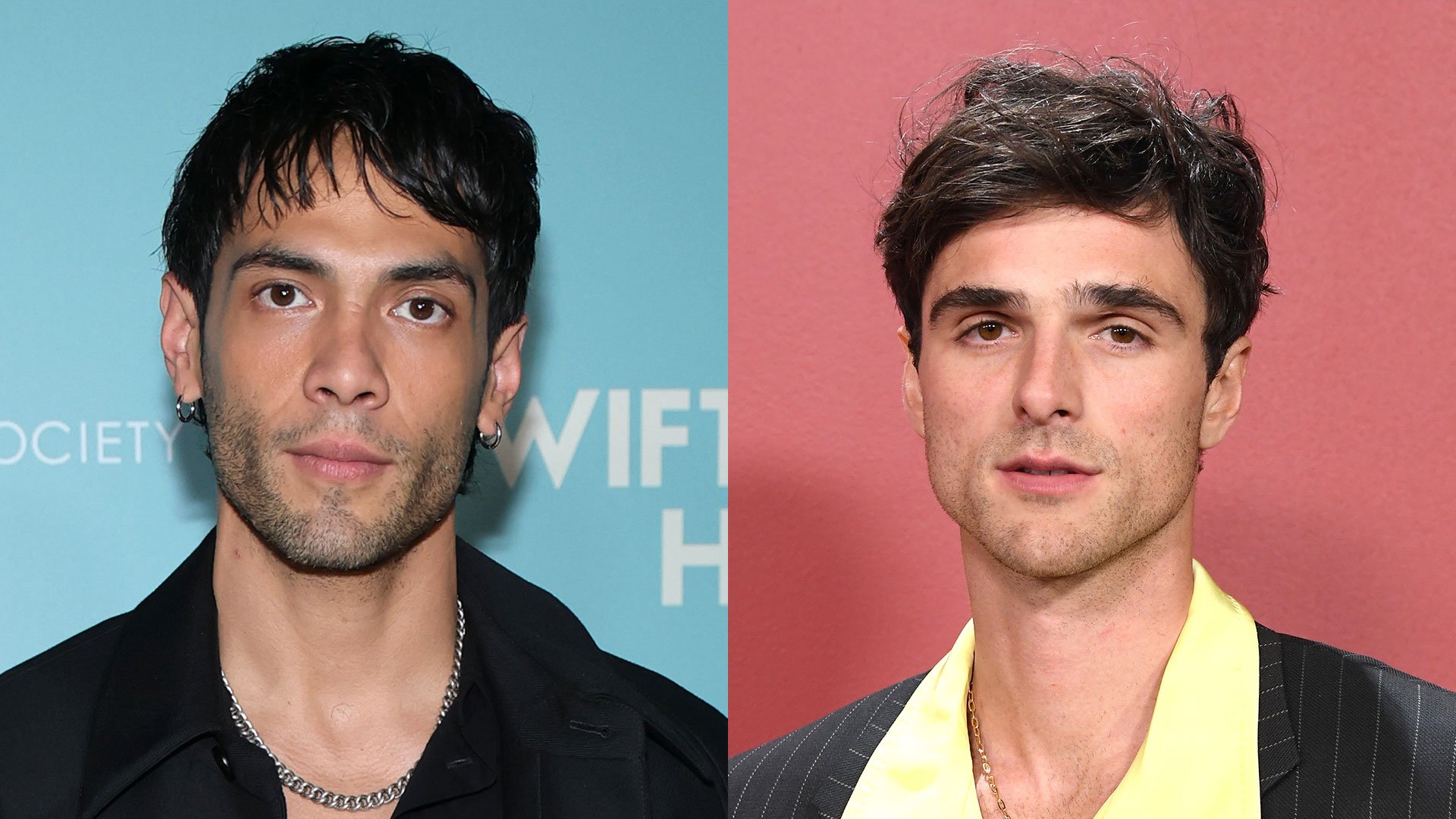 GAYETY.CODiego Calva Opens Up About Intimate Scenes with Jacob Elordi in On Swift Horses: Hes Like a God!Mexican actor Diego Calva is pulling back the curtain on what it was like to film intense, intimate scenes with co-star Jacob Elordi in the upcoming queer period drama On Swift Horses, calling the experience both intimidating and emotionally profound. The film, based on Shannon Pufahls acclaimed novel of the same name, is set against the backdrop of post-war America and centers on a loveSource0 Commentarios 0 Acciones 220 Views 0 Vista previa
GAYETY.CODiego Calva Opens Up About Intimate Scenes with Jacob Elordi in On Swift Horses: Hes Like a God!Mexican actor Diego Calva is pulling back the curtain on what it was like to film intense, intimate scenes with co-star Jacob Elordi in the upcoming queer period drama On Swift Horses, calling the experience both intimidating and emotionally profound. The film, based on Shannon Pufahls acclaimed novel of the same name, is set against the backdrop of post-war America and centers on a loveSource0 Commentarios 0 Acciones 220 Views 0 Vista previa -
 GAYETY.COAlan Cumming Confronts Historic Police Homophobia in Powerful New Film: He Was Born for This RoleIn Drive Back Home, a powerful new period drama that screened at this years BFI Flare: London LGBTIQ+ Film Festival, Canadian filmmaker Michael Clowater brings a deeply personal family story to the screen, with award-winning actor Alan Cumming and Charlie Creed-Miles portraying estranged brothers forced to reconnect during an emotional road trip. The film, rooted in Clowaters own familySource0 Commentarios 0 Acciones 206 Views 0 Vista previa
GAYETY.COAlan Cumming Confronts Historic Police Homophobia in Powerful New Film: He Was Born for This RoleIn Drive Back Home, a powerful new period drama that screened at this years BFI Flare: London LGBTIQ+ Film Festival, Canadian filmmaker Michael Clowater brings a deeply personal family story to the screen, with award-winning actor Alan Cumming and Charlie Creed-Miles portraying estranged brothers forced to reconnect during an emotional road trip. The film, rooted in Clowaters own familySource0 Commentarios 0 Acciones 206 Views 0 Vista previa -
 WWW.ESPN.COMWard huge favorite to be No. 1 pick of NFL draftMiami QB Cam Ward is a big favorite to be the No. 1 pick in the NFL draft, and odds-on favorites also have emerged at picks two through five at sportsbooks around the nation.0 Commentarios 0 Acciones 205 Views 0 Vista previa
WWW.ESPN.COMWard huge favorite to be No. 1 pick of NFL draftMiami QB Cam Ward is a big favorite to be the No. 1 pick in the NFL draft, and odds-on favorites also have emerged at picks two through five at sportsbooks around the nation.0 Commentarios 0 Acciones 205 Views 0 Vista previa -
 WWW.ESPN.COMTGL considers expansion, adding women's leagueExpansion of the tech-infused TGL will start with one additional team, while bringing in LPGA stars for a women's league also is under consideration.0 Commentarios 0 Acciones 220 Views 0 Vista previa
WWW.ESPN.COMTGL considers expansion, adding women's leagueExpansion of the tech-infused TGL will start with one additional team, while bringing in LPGA stars for a women's league also is under consideration.0 Commentarios 0 Acciones 220 Views 0 Vista previa -
 WWW.NYTIMES.COMPepsico Cuts Growth Forecast Amid Tariffs and Slowed Consumer SpendingPepsiCos earnings call pointed to anxious consumers as to why sales had slowed, echoing comments by Chipotle and Procter & Gamble.0 Commentarios 0 Acciones 204 Views 0 Vista previa
WWW.NYTIMES.COMPepsico Cuts Growth Forecast Amid Tariffs and Slowed Consumer SpendingPepsiCos earnings call pointed to anxious consumers as to why sales had slowed, echoing comments by Chipotle and Procter & Gamble.0 Commentarios 0 Acciones 204 Views 0 Vista previa -
 WWW.NYTIMES.COMProtesters Near Yale Hurl Water Bottles at Far-Right Israeli OfficialDemonstrators waving Palestinian and Israeli flags condemned the appearance of Itamar Ben-Gvir, the national security minister who has been widely criticized for his extreme views.0 Commentarios 0 Acciones 203 Views 0 Vista previa
WWW.NYTIMES.COMProtesters Near Yale Hurl Water Bottles at Far-Right Israeli OfficialDemonstrators waving Palestinian and Israeli flags condemned the appearance of Itamar Ben-Gvir, the national security minister who has been widely criticized for his extreme views.0 Commentarios 0 Acciones 203 Views 0 Vista previa -
 THEONION.COMVatican Coroner Confirms Eucharistic OverdoseVATICAN CITYIn a stunning discovery that revealed the full extent of the pontiffs addiction, Vatican coroner Fernando Ruini released a report Thursday confirming Pope Francis died of a eucharistic overdose. Our autopsy found the Holy Father had a substantial amount of Eucharist in his system roughly four times the legal limitat the time of death, said Ruini, who added that measurements of the popes blood of Christ (BOC) were consistent with those from someone who had communed with Jesus for decades. Its a wonder he lived as long as he did given his clear dependency on letting God into his heart. By the end, he was probably getting the Blessed Sacrament once or twice every day just to function. There are also some signs he was mixing in other sacramentspenance, the anointing of the sick, or whatever he needed to hit that spiritual high he got off his first communion wafer. The coroner added that he wouldnt let anyone he loved get behind the wheel of the popemobile with the late pontiffs level of blessedness.The post Vatican Coroner Confirms Eucharistic Overdose appeared first on The Onion.0 Commentarios 0 Acciones 226 Views 0 Vista previa
THEONION.COMVatican Coroner Confirms Eucharistic OverdoseVATICAN CITYIn a stunning discovery that revealed the full extent of the pontiffs addiction, Vatican coroner Fernando Ruini released a report Thursday confirming Pope Francis died of a eucharistic overdose. Our autopsy found the Holy Father had a substantial amount of Eucharist in his system roughly four times the legal limitat the time of death, said Ruini, who added that measurements of the popes blood of Christ (BOC) were consistent with those from someone who had communed with Jesus for decades. Its a wonder he lived as long as he did given his clear dependency on letting God into his heart. By the end, he was probably getting the Blessed Sacrament once or twice every day just to function. There are also some signs he was mixing in other sacramentspenance, the anointing of the sick, or whatever he needed to hit that spiritual high he got off his first communion wafer. The coroner added that he wouldnt let anyone he loved get behind the wheel of the popemobile with the late pontiffs level of blessedness.The post Vatican Coroner Confirms Eucharistic Overdose appeared first on The Onion.0 Commentarios 0 Acciones 226 Views 0 Vista previa -
WWW.APARTMENTTHERAPY.COMThis $1 Dollar Tree Storage Hack Is So Good, Youll Try It in Every RoomIt's a really smart idea.READ MORE...0 Commentarios 0 Acciones 215 Views 0 Vista previa
-
WWW.APARTMENTTHERAPY.COMAnthropologies Gorgeous New Bowls Will Transport You to the MediterraneanThey're so versatile!READ MORE...0 Commentarios 0 Acciones 218 Views 0 Vista previa
-
APNEWS.COMSex assault accusers roommate testifies at Weinstein retrial thats not quite a repeatHarvey Weinstein appears for his retrial in Manhattan Criminal Court, Thursday, April 24, 2025, in New York. (Spencer Platt/Pool Photo via AP)2025-04-24T18:41:53Z NEW YORK (AP) Hovering in the doorway of her roommates bedroom one evening in July 2006, TV production assistant Miriam Haley said Harvey Weinstein her boss had forcibly performed oral sex on her, her then-roommate testified Thursday at the ex-movie moguls retrial.I said, Miriam, that sounds like rape. I think you should call a lawyer, but a shaken Haley seemed disinclined to do so, recalled the ex-roommate, Elizabeth Entin. If secondhand, it was the first testimony jurors have gotten so far about any of the alleged sexual assaults at the heart of the retrial, which opened Wednesday. Haley and two other accusers are expected to testify later in the weekslong proceeding. Weinstein, 73, maintains that he has never sexually assaulted or raped anyone. His lawyers argue that his accusers consented to sexual encounters with the Oscar-winning producer in hopes of getting ahead in the entertainment business. Weinstein was transformed in 2017 from a Hollywood tycoon into the #MeToo movements archvillain, after a series of sexual misconduct allegations against him became public. He was convicted in 2020 of raping Jessica Mann, who was once an aspiring actor, and sexually assaulting Haley, who worked on the Weinstein-produced Project Runway. But New Yorks highest court overturned his conviction last year, finding that the trial judge had allowed prejudicial testimony. The reversal led to the retrial, which includes an additional allegation of forcible oral sex on a different woman, former model Kaja Sokola. Weinstein has pleaded not guilty to all the charges. Entin was among the witnesses who are returning to the stand five years after testifying in the landmark #MeToo case. But prosecutors, some defense lawyers and the judge are different and so are the contours of what testimony and evidence is being elicited.For instance, this time Entin didnt give any details of what she said Haley told her about the alleged sexual assault. While Entin hadnt finished her testimony as of midday, it didnt appear likely that she would be asked about a recollection that made for a memorable and rare light moment at the first trial a time when she said Weinstein showed up uninvited and was chased around the womens apartment by Entins pet Chihuahua. Farber had indicated he didnt think that having Entin describe the purported episode was fair game for the trial. Entin, a fashion startup founder and consultant, has discussed her earlier testimony in a book, on podcasts and in some interviews. Weinstein attorney Jennifer Bonjean confronted her with instances in which Entin referred to her participation in the first trial as her 15 minutes of fame and compared gearing up for testifying to preparing for battle.Maam, Entin responded tensely, this is a form of very civilized battle. The voluble Entin said that her writing style was sometimes mildly hyperbolic, but that shed been describing how she girded herself for a daunting experience. The Associated Press does not identify people who allege they have been sexually assaulted unless they agree to be named. Haley, Mann and Sokola have done so.0 Commentarios 0 Acciones 217 Views 0 Vista previa
-
APNEWS.COMJudge blocks parts of Trumps overhaul of US elections, including proof-of-citizenship requirementPresident Donald Trump speaks with reporters after signing executive orders in the Oval Office of the White House, Wednesday, April 23, 2025, in Washington. (AP Photo/Alex Brandon)2025-04-24T17:42:17Z NEW YORK (AP) A judge on Thursday blocked the Trump administration from immediately enacting certain changes to how federal elections are run, including adding a proof-of-citizenship requirement to the federal voter registration form.President Donald Trump had called for that and other sweeping changes to U.S. elections in an executive order signed in March, arguing the U.S. fails to enforce basic and necessary election protections that exist in other countries.U.S. District Judge Colleen Kollar-Kotelly in Washington sided with voting rights groups and Democrats to grant a preliminary injunction to stop the citizenship requirement from moving forward while the lawsuit plays out. She also blocked part of the Republican presidents executive order requiring public assistance enrollees to have their citizenship assessed before getting access to the federal voter registration form.But she denied other requests from a group of Democratic plaintiffs, including refusing to block Trumps order to tighten mail ballot deadlines. Also denied in the order was the Democrats request to stop Trump from directing the Department of Homeland Security and the Department of Government Efficiency to review state voter lists alongside immigration databases. The judges order halts the Trump administrations efforts to push through a proof-of-citizenship mandate that Republicans have said is needed to restore public confidence in elections. Voting in federal elections by noncitizens is already illegal and can result in felony charges and deportation. The Democratic National Committee, the League of United Latin American Citizens, the League of Women Voters Education Fund and others had sued to block Trumps order, calling it unconstitutional. They argued it violates the Constitutions so-called Elections Clause, which gives states, not the president, the authority to determine how elections are run.The plaintiffs also argued that Trumps order asserts power that he does not have over an independent agency. That agency, the U.S. Election Assistance Commission, sets voluntary voting system guidelines and maintains the federal voter registration form.During an April 17 hearing, attorneys for the plaintiffs had argued that requiring proof of citizenship on the federal voter registration form would complicate their clients voter registration drives at grocery stores and other public places.Aria Branch, counsel for the Democrats, also argued the executive orders effort to tighten mail ballot deadlines would irreparably harm her clients by forcing them to reallocate resources to help voters navigate the changes.Thats time, money and organizational resources and strategy that cant be recouped, she said.Michael Gates, counsel for the Trump administration, said in the hearing a preliminary injunction wasnt warranted because the order hadnt been implemented and a citizenship requirement would not be on the federal voter registration form for many months. The parties in the case didnt immediately comment on the judges Thursday order.The decision comes as state and local election officials from across the country are meeting to consider the implications of Trumps executive order on their work.The U.S. Election Assistance Commissions Standards Board, which was holding a public hearing in North Carolina on Thursday, is a bipartisan advisory group of election officials from every state that meets annually.Meanwhile, other lawsuits against Trumps order are still pending.In early April, 19 Democratic attorneys general asked the court to reject Trumps executive order. Washington and Oregon, which both hold all-mail elections, followed with their own lawsuit against the order.The U.S. differs from many other countries in that it does not hold national elections run by the federal government. Instead, elections are decentralized overseen by the states and run by thousands of local jurisdictions. ALI SWENSON Swenson covers politics and the information landscape for The Associated Press. She is based in New York. twitter0 Commentarios 0 Acciones 182 Views 0 Vista previa
-
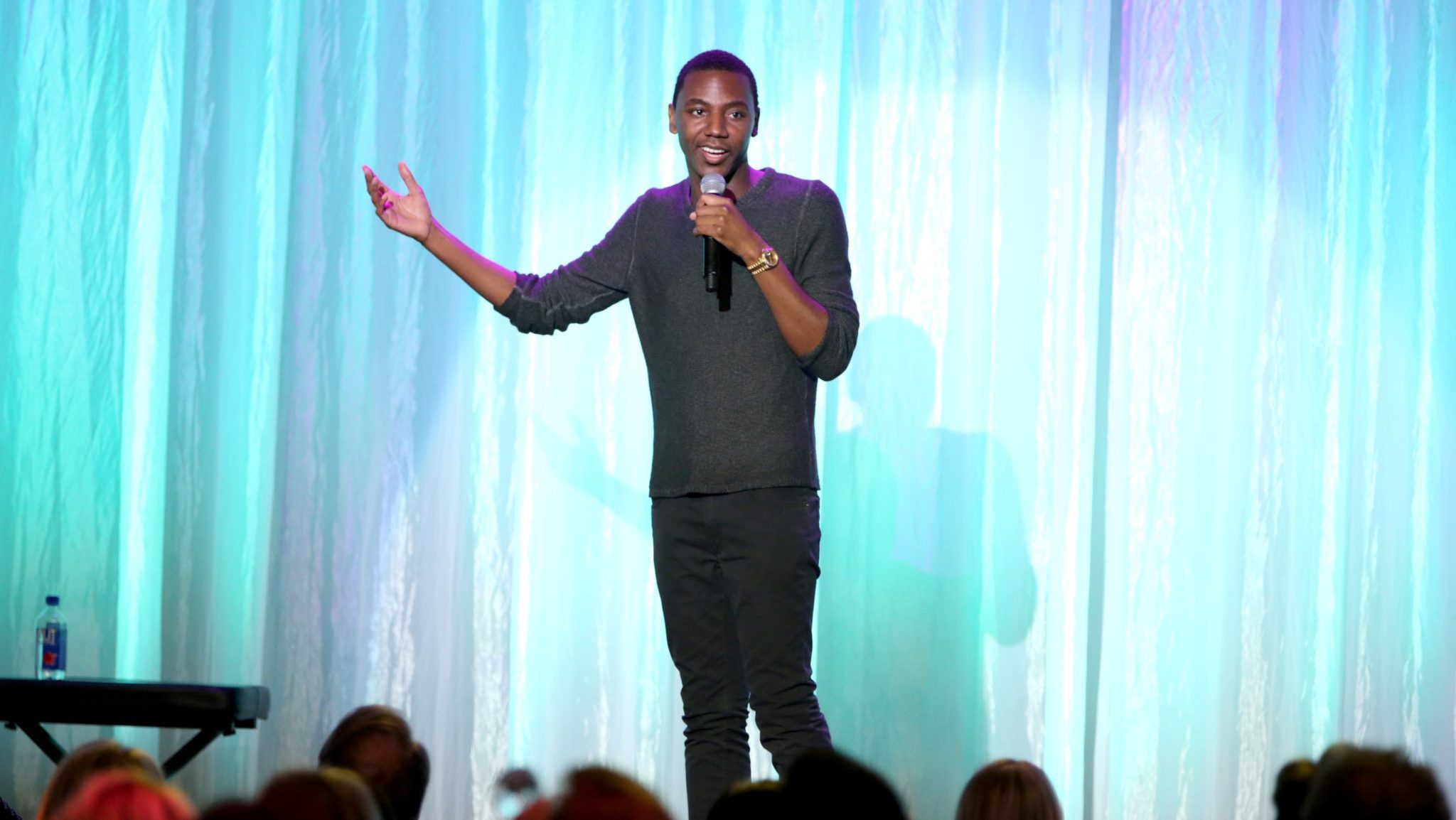 GAYETY.COJerrod Carmichael Returns to HBO With Bold New Comedy Special Dont Be GayComedian and Emmy-winning writer Jerrod Carmichael is bringing his signature honesty and wit back to HBO with a brand-new stand-up special, Dont Be Gay, premiering Saturday, May 24 at 10 p.m. ET/PT. The special will also be available to stream on Max. Following the critical success of his groundbreaking 2022 special Rothaniel, in which Carmichael came out as gay, Dont Be Gay promises toSource0 Commentarios 0 Acciones 198 Views 0 Vista previa
GAYETY.COJerrod Carmichael Returns to HBO With Bold New Comedy Special Dont Be GayComedian and Emmy-winning writer Jerrod Carmichael is bringing his signature honesty and wit back to HBO with a brand-new stand-up special, Dont Be Gay, premiering Saturday, May 24 at 10 p.m. ET/PT. The special will also be available to stream on Max. Following the critical success of his groundbreaking 2022 special Rothaniel, in which Carmichael came out as gay, Dont Be Gay promises toSource0 Commentarios 0 Acciones 198 Views 0 Vista previa -
 GAYETY.COHunter Doohan Heats Up the Internet in New Trailer for Wednesday Season 2Netflix released the first trailer for the highly anticipated second season of its hit supernatural series Wednesday on Wednesday, April 23 and it has already stirred up buzz across the internet, thanks in no small part to the return of fan-favorite Hunter Doohan. Doohan, who portrays the duplicitous Tyler Galpin a seemingly ordinary normie turned monstrous Hyde makes a striking appearanceSource0 Commentarios 0 Acciones 226 Views 0 Vista previa
GAYETY.COHunter Doohan Heats Up the Internet in New Trailer for Wednesday Season 2Netflix released the first trailer for the highly anticipated second season of its hit supernatural series Wednesday on Wednesday, April 23 and it has already stirred up buzz across the internet, thanks in no small part to the return of fan-favorite Hunter Doohan. Doohan, who portrays the duplicitous Tyler Galpin a seemingly ordinary normie turned monstrous Hyde makes a striking appearanceSource0 Commentarios 0 Acciones 226 Views 0 Vista previa -
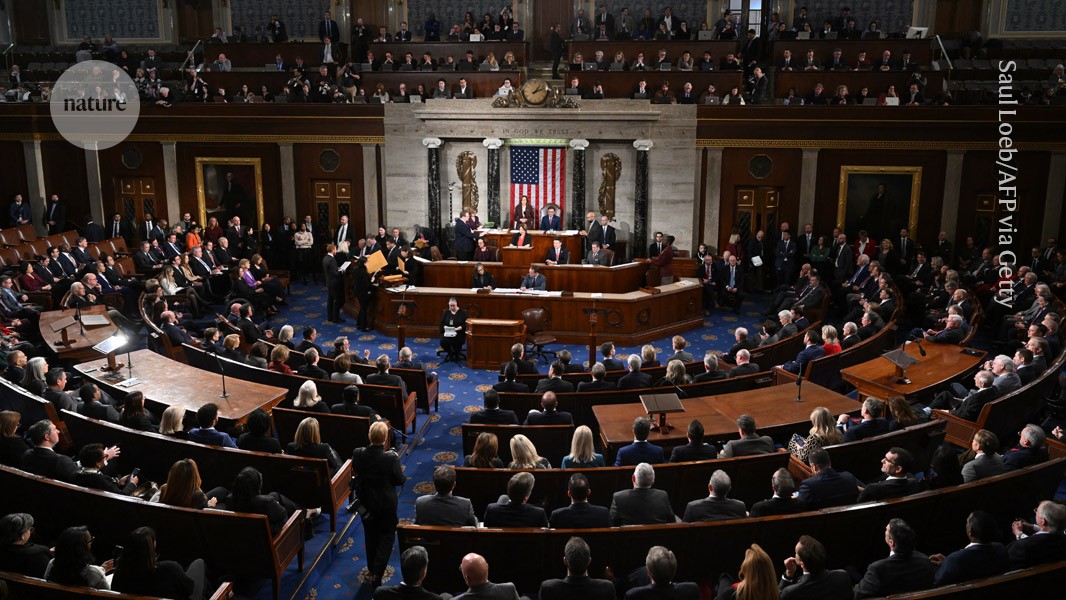 WWW.NATURE.COMHow Democrats and Republicans cite science: study reveals stark differencesNature, Published online: 24 April 2025; doi:10.1038/d41586-025-01311-9Democratic-led congressional committees and left-wing think tanks reference research papers more often than their right-wing counterparts.0 Commentarios 0 Acciones 204 Views 0 Vista previa
WWW.NATURE.COMHow Democrats and Republicans cite science: study reveals stark differencesNature, Published online: 24 April 2025; doi:10.1038/d41586-025-01311-9Democratic-led congressional committees and left-wing think tanks reference research papers more often than their right-wing counterparts.0 Commentarios 0 Acciones 204 Views 0 Vista previa -
 WWW.ESPN.COMVardy to leave Leicester: 'Our greatest-ever player'Jamie Vardy will leave Leicester City at the end of the season, the Premier League club confirmed on Wednesday.0 Commentarios 0 Acciones 199 Views 0 Vista previa
WWW.ESPN.COMVardy to leave Leicester: 'Our greatest-ever player'Jamie Vardy will leave Leicester City at the end of the season, the Premier League club confirmed on Wednesday.0 Commentarios 0 Acciones 199 Views 0 Vista previa -
 WWW.ESPN.COMSources: USC recruit Arenas in coma after crashFive-star prospect and USC commit Alijah Arenas has been placed in an induced coma after he was involved in a serious car crash in the Los Angeles area, sources told ESPN.0 Commentarios 0 Acciones 218 Views 0 Vista previa
WWW.ESPN.COMSources: USC recruit Arenas in coma after crashFive-star prospect and USC commit Alijah Arenas has been placed in an induced coma after he was involved in a serious car crash in the Los Angeles area, sources told ESPN.0 Commentarios 0 Acciones 218 Views 0 Vista previa -
 WWW.NYTIMES.COMU.S. Officials to Cut Funding for Landmark Study of Womens HealthThe Womens Health Initiative has produced thousands of research papers, altering medical care for patients around the world.0 Commentarios 0 Acciones 202 Views 0 Vista previa
WWW.NYTIMES.COMU.S. Officials to Cut Funding for Landmark Study of Womens HealthThe Womens Health Initiative has produced thousands of research papers, altering medical care for patients around the world.0 Commentarios 0 Acciones 202 Views 0 Vista previa -
 WWW.NYTIMES.COMChild Health Experts With Diversity Roles Will Be Fired or ReassignedThe moves are aimed at eliminating diversity, equity and inclusion efforts and environmental justice programs at the E.P.A., Trump administration officials say.0 Commentarios 0 Acciones 215 Views 0 Vista previa
WWW.NYTIMES.COMChild Health Experts With Diversity Roles Will Be Fired or ReassignedThe moves are aimed at eliminating diversity, equity and inclusion efforts and environmental justice programs at the E.P.A., Trump administration officials say.0 Commentarios 0 Acciones 215 Views 0 Vista previa -
WWW.APARTMENTTHERAPY.COMThis Viral Paint Hack Isnt Worth Your Time Heres What to Do InsteadTrust us on this one, put down the hammerREAD MORE...0 Commentarios 0 Acciones 236 Views 0 Vista previa
-
WWW.APARTMENTTHERAPY.COMThis New Collaboration Feels Like Living in an Anthropologie CatalogEverything you see is available to buy, so you can bring this look home.READ MORE...0 Commentarios 0 Acciones 220 Views 0 Vista previa
-
Sweet Traditions & Juicy Bites: The Cherry Festival in The Dalles, OregonIf you’ve ever wandered through The Dalles, Oregon in late April, you’ve probably felt it: that mix of sunshine, blossoms, and the unmistakable scent of something sweet in the air. It might be the cherry trees blooming. It might be funnel cake from a street vendor. Either way, it means one thing—the Cherry Festival is back. This isn’t just a weekend full of rides and...0 Commentarios 0 Acciones 2K Views 0 Vista previa
-
APNEWS.COMA carnivorous bone collector caterpillar dresses in the remains of its preyThis photo provided by Daniel Rubinoff in April 2025 shows a new species of carnivorous caterpillar, left, which uses a protective case made with insect parts, near a spider in Oahu, Hawaii. (Courtesy Daniel Rubinoff via AP)2025-04-24T18:01:02Z NEW YORK (AP) A new carnivorous caterpillar that wears the remains of its prey has been dubbed the bone collector.The odd insect is only found on the Hawaiian island of Oahu. It creeps along spiderwebs, feeding on trapped insects and decorating its silk case with their body parts.There are other meat-eating caterpillars that do lots of crazy things, but this takes the cake, said study author Dan Rubinoff with the University of Hawaii at Manoa.Scientists think the case might act as camouflage, allowing the caterpillar to feast on the spiders ensnared meals without getting caught.A host of caterpillars native to Hawaii use silk glands to spin protective cases studded with lichen, sand and other materials. This one is the first to use ant heads and fly wings.It really is an astonishing type of case, said Steven Montgomery, an entomology consultant in Hawaii who was not involved with the new study. Findings were published Thursday in the journal Science. Scientists found just 62 of the carnivorous caterpillars in over 20 years of observing.Predatory caterpillars are extremely rare and the bone collectors found in Hawaii will even eat each other, researchers said. The bone collectors origins date back at least 6 million years, making the caterpillars more ancient than the Hawaiian islands themselves. Today, they dwell on an isolated patch of mountain forest alongside invasive species. There is really a concern that we need to do better with conservation, said Rubinoff.___The Associated Press Health and Science Department receives support from the Howard Hughes Medical Institutes Science and Educational Media Group and the Robert Wood Johnson Foundation. The AP is solely responsible for all content. ADITHI RAMAKRISHNAN Ramakrishnan is a science reporter for The Associated Press, based in New York. She covers research and new developments related to space, early human history and more. twitter mailto0 Commentarios 0 Acciones 213 Views 0 Vista previa
-
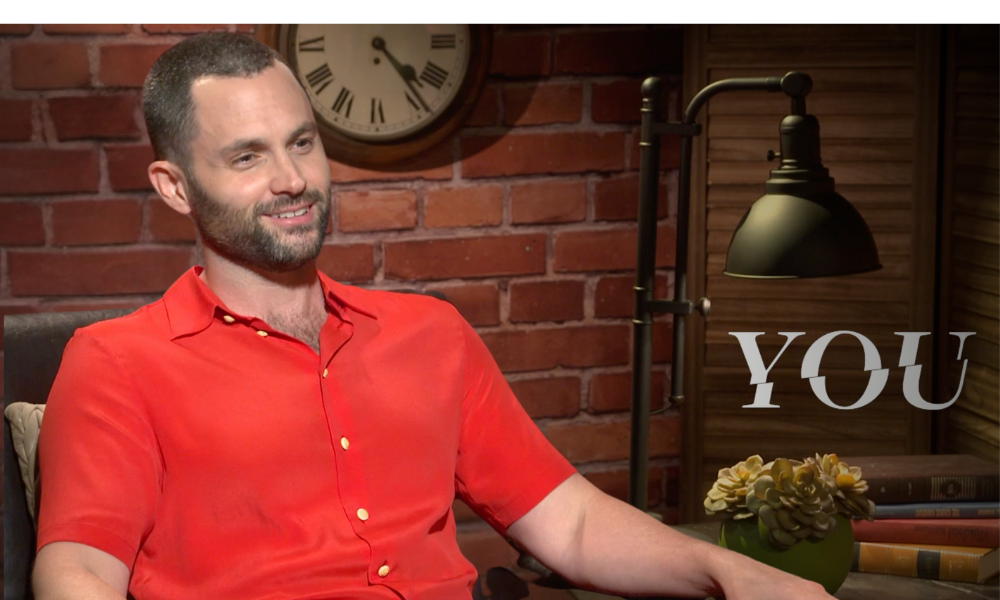 GAYETY.COPenn Badgley Breaks Down the End of You: Its As Close to a Perfect Ending As It Could BeAfter five seasons of obsession, murder, and internal monologues, Netflixs You has finally come to an endand no ones more ready to talk about it than Joe Goldberg himself, Penn Badgley. SEASON FINALE SPOILERS AHEAD In an exclusive interview with Caitlynn McDaniel, Badgley reflected on the long, twisted journey of playing one of TVs most charming (and horrifying) antiheroes.Source0 Commentarios 0 Acciones 221 Views 0 Vista previa
GAYETY.COPenn Badgley Breaks Down the End of You: Its As Close to a Perfect Ending As It Could BeAfter five seasons of obsession, murder, and internal monologues, Netflixs You has finally come to an endand no ones more ready to talk about it than Joe Goldberg himself, Penn Badgley. SEASON FINALE SPOILERS AHEAD In an exclusive interview with Caitlynn McDaniel, Badgley reflected on the long, twisted journey of playing one of TVs most charming (and horrifying) antiheroes.Source0 Commentarios 0 Acciones 221 Views 0 Vista previa -
 GAYETY.COOnya Nurve Crowned Winner of RuPauls Drag Race Season 17 and Eyes EGOT NextIt do take Nurve and Onya Nurve has more than proven it. After a powerhouse run on RuPauls Drag Race Season 17, Onya took home the crown and the title of Americas Next Drag Superstar on April 18, delivering a grand finale performance that had fans and judges alike on their feet. Already a fan favorite before the final episode aired, Onya made history by racking up more than 700,000Source0 Commentarios 0 Acciones 225 Views 0 Vista previa
GAYETY.COOnya Nurve Crowned Winner of RuPauls Drag Race Season 17 and Eyes EGOT NextIt do take Nurve and Onya Nurve has more than proven it. After a powerhouse run on RuPauls Drag Race Season 17, Onya took home the crown and the title of Americas Next Drag Superstar on April 18, delivering a grand finale performance that had fans and judges alike on their feet. Already a fan favorite before the final episode aired, Onya made history by racking up more than 700,000Source0 Commentarios 0 Acciones 225 Views 0 Vista previa -
-
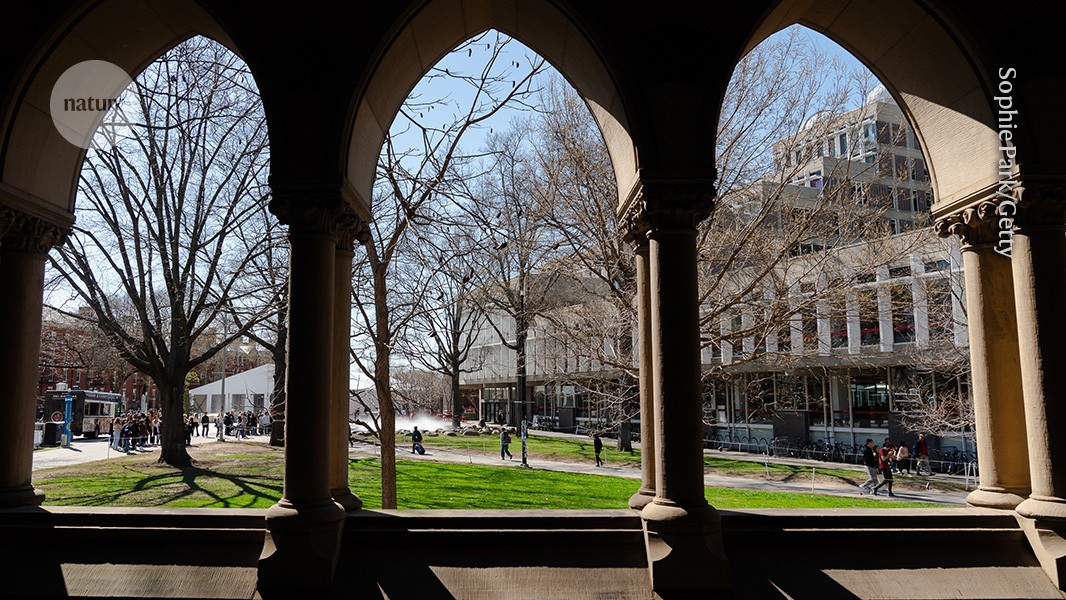 WWW.NATURE.COMHow Trumps attack on universities is putting research in perilNature, Published online: 24 April 2025; doi:10.1038/d41586-025-01289-4Scientists have little information as the US government freezes and cancels their funding.0 Commentarios 0 Acciones 232 Views 0 Vista previa
WWW.NATURE.COMHow Trumps attack on universities is putting research in perilNature, Published online: 24 April 2025; doi:10.1038/d41586-025-01289-4Scientists have little information as the US government freezes and cancels their funding.0 Commentarios 0 Acciones 232 Views 0 Vista previa -
 WWW.ESPN.COMBundesliga's race for Europe: Can Dortmund come back to reach UCL?The Bundesliga table is tight near the top, with 11 teams possessing real and achievable European aspirations.0 Commentarios 0 Acciones 205 Views 0 Vista previa
WWW.ESPN.COMBundesliga's race for Europe: Can Dortmund come back to reach UCL?The Bundesliga table is tight near the top, with 11 teams possessing real and achievable European aspirations.0 Commentarios 0 Acciones 205 Views 0 Vista previa -
 WWW.ESPN.COMSources: '26 OT recruit Greene flips to HuskiesFour-star offensive tackle Kodi Greene, the No. 37 recruit in the 2026 ESPN 300, has flipped from Oregon to Washington, sources told ESPN.0 Commentarios 0 Acciones 216 Views 0 Vista previa
WWW.ESPN.COMSources: '26 OT recruit Greene flips to HuskiesFour-star offensive tackle Kodi Greene, the No. 37 recruit in the 2026 ESPN 300, has flipped from Oregon to Washington, sources told ESPN.0 Commentarios 0 Acciones 216 Views 0 Vista previa -
 WWW.NYTIMES.COMU.S. Sidelines Lawyers Who Doubted Their Own Case on Congestion PricingThe Trump administration replaced lawyers who had exposed flaws in its legal battle over New York Citys congestion pricing program.0 Commentarios 0 Acciones 211 Views 0 Vista previa
WWW.NYTIMES.COMU.S. Sidelines Lawyers Who Doubted Their Own Case on Congestion PricingThe Trump administration replaced lawyers who had exposed flaws in its legal battle over New York Citys congestion pricing program.0 Commentarios 0 Acciones 211 Views 0 Vista previa -
 WWW.NYTIMES.COMTrump Plans to Target ActBlue, Democrats Cash EngineThe president plans to direct the Justice Department to investigate ActBlue, the main Democratic fund-raising platform, in his latest move using the government to target political opponents.0 Commentarios 0 Acciones 217 Views 0 Vista previa
WWW.NYTIMES.COMTrump Plans to Target ActBlue, Democrats Cash EngineThe president plans to direct the Justice Department to investigate ActBlue, the main Democratic fund-raising platform, in his latest move using the government to target political opponents.0 Commentarios 0 Acciones 217 Views 0 Vista previa -
WWW.APARTMENTTHERAPY.COMMy Mom Swears By This $7 Staple for Spring GardeningShe uses it every day. READ MORE...0 Commentarios 0 Acciones 223 Views 0 Vista previa
-
WWW.APARTMENTTHERAPY.COMThis Lightweight Throw Blanket Is Perfect Year-Round I Can't Put It DownIt hasn't left my sofa for over a year.READ MORE...0 Commentarios 0 Acciones 233 Views 0 Vista previa
-
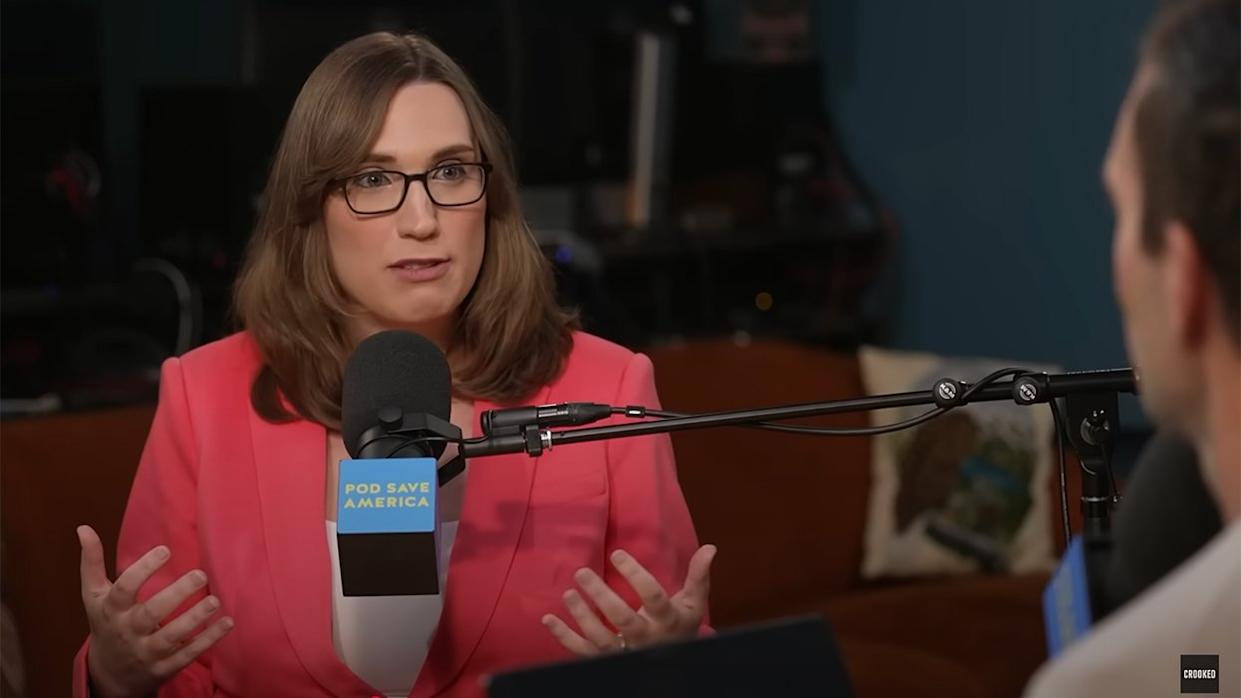 GAYETY.CORep. Sarah McBride Says GOP Treats Politics Like a Bravo Reality ShowRep. Sarah McBride, the first out transgender member of Congress, isnt afraid to call things as she sees them and shes not mincing words when it comes to how some Republicans are behaving on Capitol Hill. Speaking on the April 20 episode of Pod Save America, the Delaware Democrat likened the GOPs political tactics to a reality TV drama. Some of my colleagues are treating me the way theySource0 Commentarios 0 Acciones 214 Views 0 Vista previa
GAYETY.CORep. Sarah McBride Says GOP Treats Politics Like a Bravo Reality ShowRep. Sarah McBride, the first out transgender member of Congress, isnt afraid to call things as she sees them and shes not mincing words when it comes to how some Republicans are behaving on Capitol Hill. Speaking on the April 20 episode of Pod Save America, the Delaware Democrat likened the GOPs political tactics to a reality TV drama. Some of my colleagues are treating me the way theySource0 Commentarios 0 Acciones 214 Views 0 Vista previa -
 WWW.ESPN.COMSzczesny on smoking: Don't follow my exampleBarcelona goalkeeper Wojciech Szczesny has told ESPN he has lost his battle with smoking and urged others not to follow his lead.0 Commentarios 0 Acciones 211 Views 0 Vista previa
WWW.ESPN.COMSzczesny on smoking: Don't follow my exampleBarcelona goalkeeper Wojciech Szczesny has told ESPN he has lost his battle with smoking and urged others not to follow his lead.0 Commentarios 0 Acciones 211 Views 0 Vista previa -
 WWW.ESPN.COMSource: Bayern's Mller rejects Cincinnati offerBayern Munich midfielder/forward Thomas Mller has rejected a contract offer from FC Cincinnati, a source confirmed to ESPN.0 Commentarios 0 Acciones 223 Views 0 Vista previa
WWW.ESPN.COMSource: Bayern's Mller rejects Cincinnati offerBayern Munich midfielder/forward Thomas Mller has rejected a contract offer from FC Cincinnati, a source confirmed to ESPN.0 Commentarios 0 Acciones 223 Views 0 Vista previa -
 WWW.NYTIMES.COMWhat Elon Musk Didnt Budget For: Firing Workers Costs Money, TooAn expert on the federal work force estimates that the speed and chaos of Mr. Musks cuts to the bureaucracy will cost taxpayers $135 billion this fiscal year.0 Commentarios 0 Acciones 227 Views 0 Vista previa
WWW.NYTIMES.COMWhat Elon Musk Didnt Budget For: Firing Workers Costs Money, TooAn expert on the federal work force estimates that the speed and chaos of Mr. Musks cuts to the bureaucracy will cost taxpayers $135 billion this fiscal year.0 Commentarios 0 Acciones 227 Views 0 Vista previa









